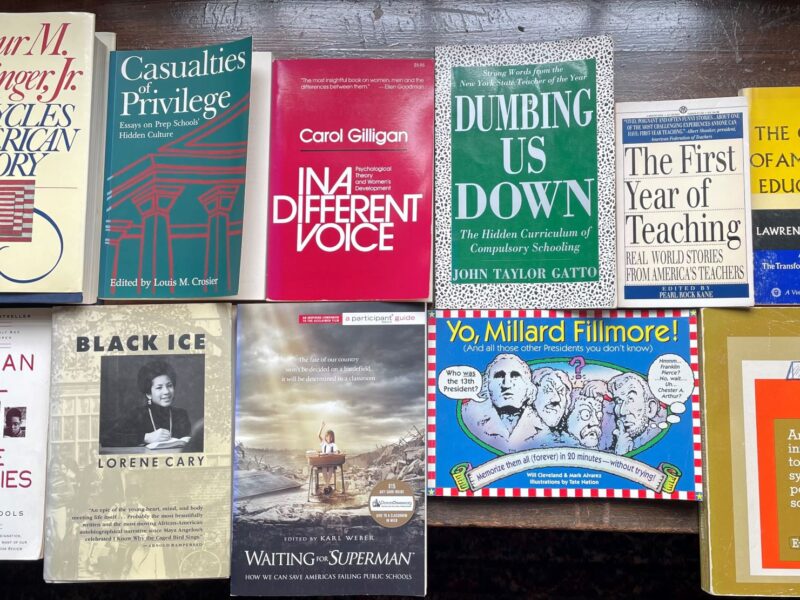As seen in today’s Portland Press Herald
Applying to the ‘most selective’ colleges means accepting the ordeal as a crap shoot.
BATH – When I applied to college 40 years ago, it was a fun and exciting time with minimal parental intervention.
I applied to four colleges in the “Most Selective” category. My teenage naivete had me thinking that I would get into at least one of them and featured a hazy back-up plan consisting of a partially filled out application (stuffed in my desk drawer) for a school with “rolling” admissions that I perceived, realistically or not, as a sure thing.
Come April, I went 2 for 4. My “plan” worked.
If you are the parent or teacher of a high school senior applying to college, I don’t need to tell you that times have changed. Not only has “fun and exciting” been replaced by high anxiety, the parental role has transitioned from spectator to that of full-on participant.
Perhaps a few observations will prove helpful to applicants and their families as they move into the phase of the annual college application cycle that sometimes calls for hand-holding skills.
Any high school senior who applies to those schools listed in the “Most Selective” category should accept the ordeal as a crap shoot. Specifically, the 50 most selective colleges present a very poor set of odds ranging from a 25 percent to a 6 percent acceptance rate.
Today’s “We regret to inform you” letters basically riff on the same message I got in 1972: “We regret to inform you . . . As impressive as your credentials are . . . We had many more qualified applicants than we could admit . . . Don’t take it personally . . . We wish you luck.”
These letters manage to present the truth while obscuring the whole story.
Even if you manage to meet the qualifications of the publicly stated criteria (SAT, GPA, rank in class, etc.) you then get compared against a moving target in the form of annually changing secret criteria.
You will do well to assume that there are multiple conversations going on behind closed doors at your dream school: “Enough with these illiterate athletes!”. . . “We need more oboe players.”. . . “Dial down the Northeast kids, recruit more Seattle kids.” . . . “Let’s address our lack of cultural diversity.”
And on and on.
(To amplify the “on and on” factor, understand that each one of these criteria also has its mirror opposite: “We need better athletic teams.” “Enough with the oboe players.” etc.)
To review thus far: 1) Secret criteria exist. 2) You’re not in on the secret.
To compound confusion, also realize that the “Most Selective” colleges will welcome your application with a smile, even if you’re not qualified. After all, an over-supply of unqualified candidates serves their purposes by enabling them to maintain their ultra-selective status.
All of the admissions websites — US News, College Prowler, Unigo, etc. — present their selectivity rankings based solely on absolute numbers: Total Applicants vs. Number Admitted.
For example, the 1,310 lucky individuals who began in September of 2009 as members of Yale’s Class of 2013 began their admissions odyssey in an applicant pool of 26,000 high school seniors — 1,900 of whom were admitted.
Not only can you get better odds in some Las Vegas casinos, you never really get to know where you stand in relation to the other applicants.
(And don’t expect the college of your choice to do all that much to unravel that mystery as it also serves their purpose.)
As one who has done a great deal of hand-holding over the years, I long for a game-changing college admissions department to actually say to an applicant, “As impressive a candidate as you are, I must tell you that you are unlikely to be admitted here. Would you like me to give you a few suggestions of schools that might be a better fit for you?”
The current structure of college rankings presents a disincentive to the admissions departments to act in this way.
So, should a friendly poker face encourage you to apply to the college of your dreams, by all means, go ahead. Just don’t lose sight of the gambler’s maxim: the odds always favor the house.
When all is said and done, good luck, but remember, whatever they decide — up or down — says little about you and everything about them.
If you get in, congratulations, they chose to let you into their club. If you don’t, they didn’t.
But regardless of what they decide, never let your self-confidence be determined according to others’ assessment of your worthiness.
That decision is yours and yours alone.
Malcolm Gauld is president of the Hyde Schools and the author of “College Success Guaranteed – 5 Rules to make it Happen.”


